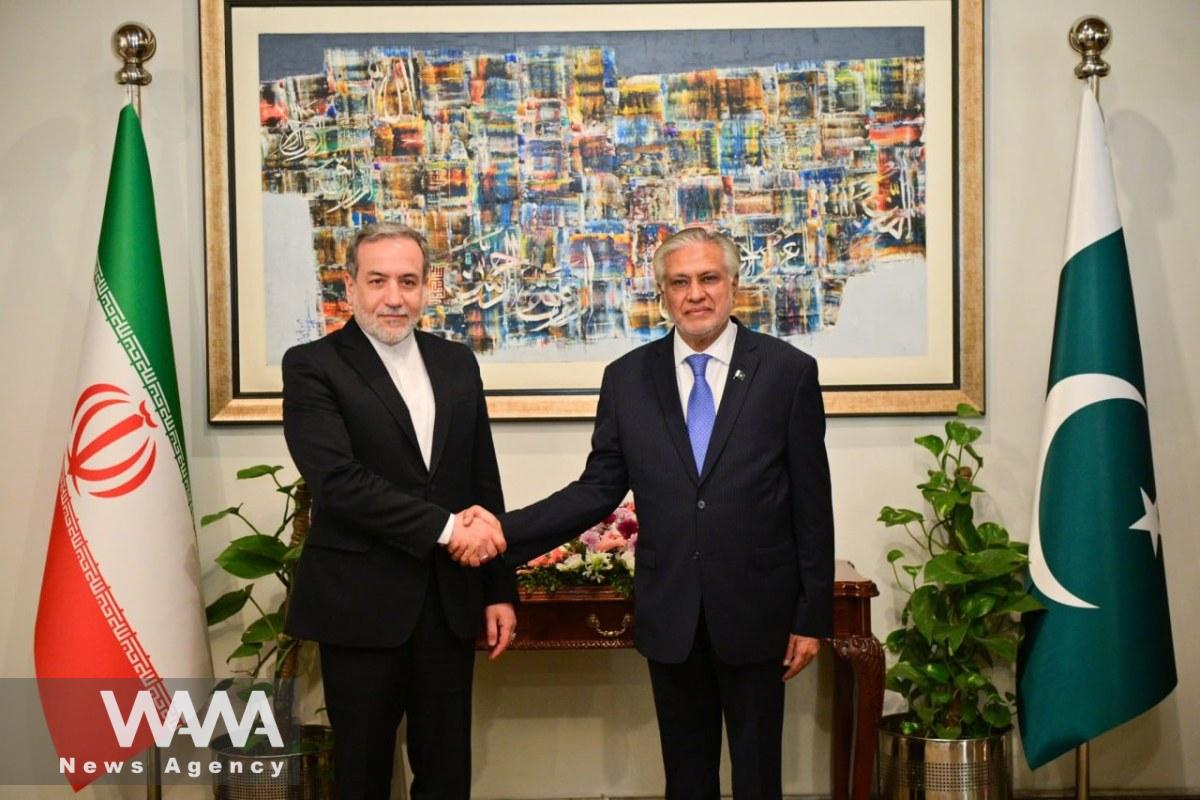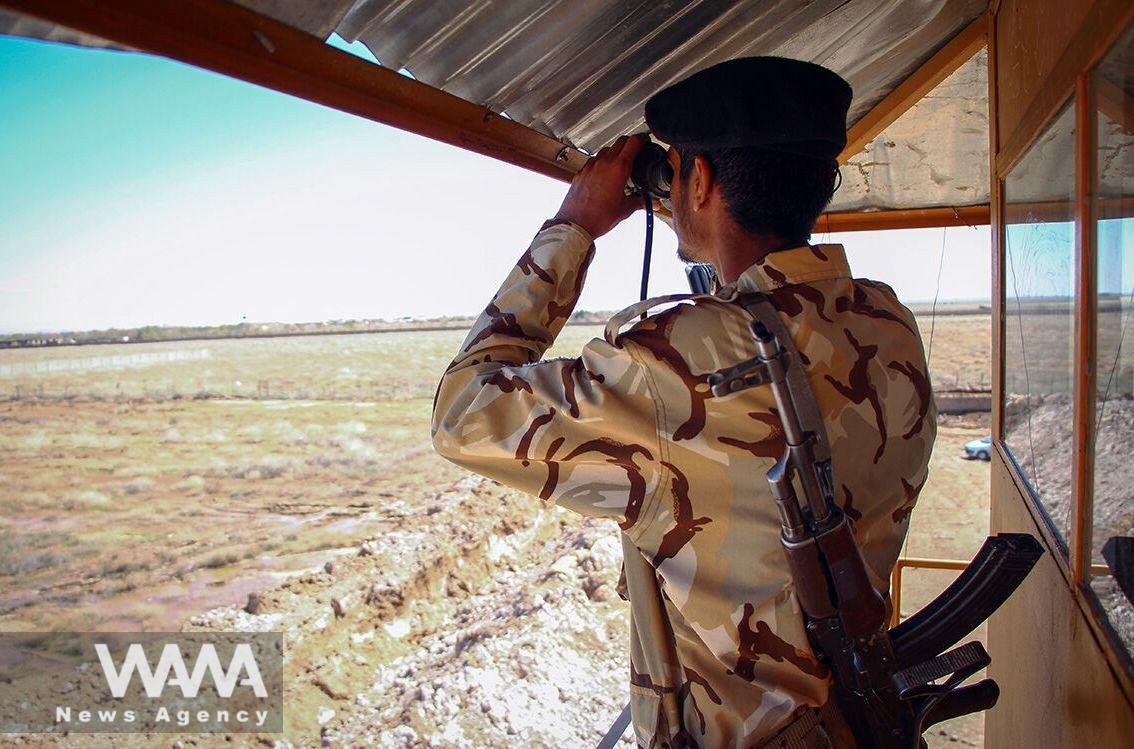Iran and Pakistan Facing Border Terrorism Crisis
WANA (Nov 06) – As Iran and Pakistan face increasing threats from terrorist groups and internal challenges, their security cooperation has gained significant importance. The Iranian foreign minister’s visit to Pakistan has sparked discussions about this collaboration, with experts suggesting that the meeting holds critical anti-terrorism and security significance. Yet, the main question remains: can these two nations establish sustained and practical operational cooperation?
Examining recent border incidents and mutual threats reveals why security cooperation between Iran and Pakistan is essential. In the border regions of Sistan-Baluchestan in Iran and Baluchistan in Pakistan, groups like Jaish al-Adl and Tehrik-i-Taliban Pakistan (TTP) operate, endangering not only regional stability but also posing a direct threat to both countries through targeted attacks on security forces. A security analyst at the American South Asia Studies Institute stated, “Terrorist groups exploit complex and porous borders to carry out disruptive activities, taking advantage of security discrepancies between Iran and Pakistan.”
Recent incidents in Iran, such as terrorist attacks in Zahedan and other border areas, show that these threats are not limited to Pakistan and underscore the need for serious coordination. The Pakistani newspaper Dawn noted, “Security mismatches between Iran and Pakistan have allowed terrorist groups to gain greater infiltration, and without effective cooperation, these groups will remain active.”

Iran and Pakistan Cooperation in Combating Terrorist Groups
WANA (Nov 06) – Iranian Foreign Minister Seyed Abbas Araghchi, following his recent visit to Pakistan, reported strengthened coordination between Iran and Pakistan in combating terrorist groups. “We have decided to intensify our actions against these terrorist organizations and improve our coordination,” Araghchi stated. Speaking to reporters, Araghchi addressed regional security issues and noted […]
Fundamental differences in defining and prioritizing anti-terrorism efforts present challenges to this cooperation. For example, Pakistan has recently focused on countering the TTP, pushing the country towards distinct border policies. On the other hand, Iran faces pressure from extremist groups’ activities along its eastern borders. A Pakistani security official told The Express Tribune, “Iran and Pakistan prioritize different threats, and this difference in perspectives has prevented the formation of a joint operational strategy.”
Iran-Pakistan security collaboration is also influenced by the roles of third countries such as the United States, India, and Saudi Arabia. Analysts like John Cately, author of Regional Powers in the Middle East, believe, “India’s active presence in the Chabahar port project and its strategic relationship with Iran has led Pakistan to view its security cooperation with Iran within the framework of regional competition.”

Meeting and Discussion Between Araghchi and Muhammad Ishaq Dar, Foreign Ministers of the Islamic Republic of Iran and Pakistan on November 05, 2024. Social media/ WANA News Agency
The U.S., a key player in South Asia, has consistently pressured Pakistan to tightly manage its borders. Given Iran’s position as a primary opponent of U.S. influence in the region, these pressures further complicate cooperation between the two countries.
The recent visit of Iran’s foreign minister to Pakistan is seen by many analysts as an important step toward strengthening security and anti-terrorism cooperation. Seyed Abbas Araghchi, the Iranian foreign minister, commented, “We have decided to intensify our efforts against these terrorist groups and improve coordination.”
During this visit, issues such as border control, security information exchange, and joint border deployments were discussed. Iranian analyst Saeed Kamali Dehghan wrote, “This symbolic visit could mark the beginning of a new era of Iran-Pakistan security interactions, but its success depends on the commitment and operational implementation of agreements.”

Terrorists Used Pakistan Territory to Kill Soldiers
WANA (May 22) – The funeral ceremony of the victims of the Saravan terrorist attack was held in Zahedan City with the presence of military commanders, officials, and people of Sistan and Baluchistan province. Five ” Saravan ” border guards were last night in a clash with a terrorist group. In this conflict in the […]
Various legal and bureaucratic structures have also complicated cooperation. In Iran, counter-terrorism policies are implemented through the Supreme National Security Council, while in Pakistan, this responsibility lies with the Inter-Services Intelligence (ISI). A political analyst at the Regional Research Center in Islamabad stated, “Complex bureaucracy and differing security structures have slowed down collaborative efforts.”
This cooperation cannot remain merely symbolic. The sensitive regional conditions and shared threats require the two countries to reach practical understanding and coordination. According to experts, establishing joint security committees with executive power and a commitment to implementing agreements could provide a solution for moving beyond the current situation. As one Iranian expert noted, “This collaboration could lead to trust-building and serve as a foundation for future economic and political cooperation.”
If the two countries cannot overcome structural and political obstacles, terrorism threats may become a persistent security vulnerability for the region.













